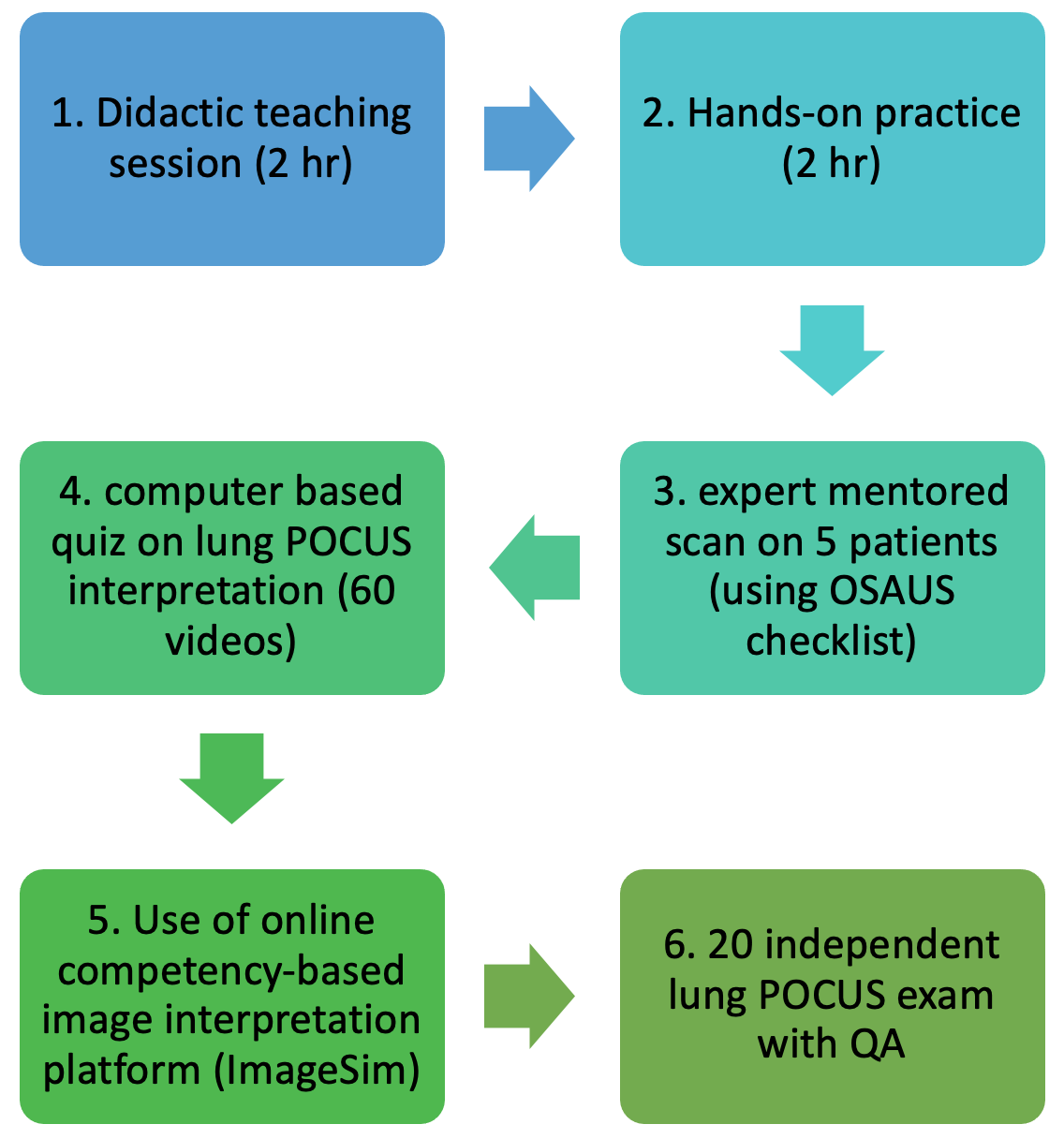Emergency Medicine
Session: Emergency Medicine 6: Airway and POCUS
206 - A train-the-trainer POCUS program for diagnosing pediatric pneumonia in a low-resource setting
Sunday, May 5, 2024
3:30 PM - 6:00 PM ET
Poster Number: 206
Publication Number: 206.1899
Publication Number: 206.1899

Michelle Lee, MDCM (she/her/hers)
Pediatric Emergency Physician
The Hospital for Sick Children
Toronto, Ontario, Canada
Presenting Author(s)
Background: Pneumonia is a serious pediatric global health concern, especially in low-resource settings. Point-of-care ultrasound (POCUS) is a promising tool for detecting pediatric pneumonia. Prior studies suggest that novice POCUS users in low resource settings show high agreement with remote POCUS experts for the detection of pediatric pneumonia, but use of remote experts may falsely inflate this agreement.
Objective: 1) Deliver a train-the-trainer pediatric pneumonia POCUS training program in a low-resource setting
2) Determine interrater reliability between novice and experienced local POCUS users performing pediatric pneumonia POCUS on the same patients
3) Examine reasons for disagreement between novice and experienced local POCUS users
Design/Methods: Phase 1 - two Canadian POCUS experts developed multimodal pediatric pneumonia POCUS training programs (see Fig 1) for novice and experienced POCUS users working in Karachi, Pakistan. One expert delivered the training program on-site to two experienced POCUS users over the course of a week. These experienced POCUS users then delivered the novice user training program to three local community health workers (CHWs).
Phase 2 - Children presenting to two local hospitals between 2018-2019 with symptoms suggestive of pneumonia were then recruited. Each patient underwent two pneumonia POCUS examinations, one by a novice user and one by an experienced user. POCUS users were blinded to each other and to patient diagnosis. POCUS examinations were recorded and user interpretations documented. At a later date, a remote blinded pediatric pneumonia POCUS expert interpreted the recorded examinations and rated their quality. Interrater reliability was reported using the Kappa statistic.
Results: In phase 1, experienced local POCUS users completed the training program and subsequently successfully trained the CHWs. In phase 2231 patients were included in the analysis (demographics in Table 1). There was moderate agreement between novice and experienced local users (Kappa 0.66, 95% CI 0.55 – 0.75); Table 2 shows reasons for disagreements. Image quality was high for both novice and experienced local users. There was strong agreement between novice local users & the remote expert (Kappa 0.83, 95% CI 0.75-0.89), also between the experienced local users & the remote expert (Kappa 0.90, 95% CI 0.83-0.95).
Conclusion(s): Our pediatric pneumonia POCUS training program feasibly allows local experienced POCUS users to train local novice users. Interrater reliability may be artificially inflated when remote experts interpret pediatric pneumonia POCUS examinations recorded by local users.
.png)
.png)

